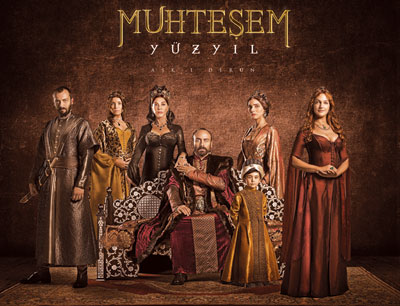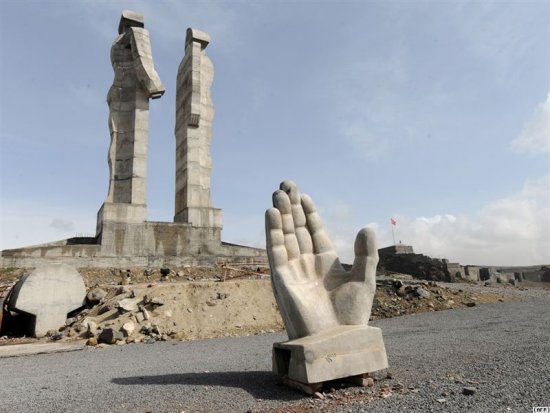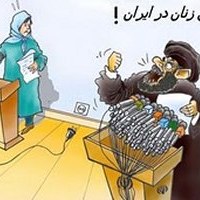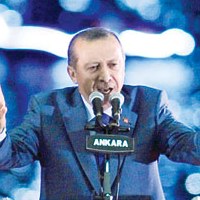![]()
Thu, Jan 24, 2011 | SilkRoadStudies.org, Turkey Analyst, vol. 4 no. 2 | By Halil M. Karaveli
AKP Sees to Control Society – but can it?
This article was first published in the Turkey Analyst (www.turkeyanalyst.org), a biweekly publication of the Central Asia-Caucasus Institute & Silk Road Studies Program Joint Center.
The liberals who were instrumental in legitimating the ascension of the Justice and development party (AKP) are now dramatically revoking their support for the Islamic conservatives. Its erstwhile allies accuse the AKP of seeking to reintroduce a culturally conservative version of the old regime of state tutelage. Yet it is simply beyond the power of the state to impose an ideological straitjacket on Turkey, be it Kemalist or Islamist.
Background: The support of Turkey’s small but influential liberal intelligentsia has been crucial for the AKP. The liberals helped legitimate the party, not least in the eyes of Western opinion, by lending credibility to the former Islamists’ claim that they had abandoned old ideological habits and adopted an agenda for greater freedom. The liberals crucially furnished the Islamists with a theoretical framework that enabled the latter to advance their traditional cause of religious conservatism with a discourse that invoked freedom, not religious dogmatism.
As long as the Islamists kept defending their pet issues like the right to wear the headscarf as a religious obligation, they were more or less put on the ideological defensive, having to defend themselves against the seculars for whom the headscarf is a symbol of female subordination, prescribed by Islam. When the issue was reframed as being one about personal freedom, the Islamists gained the moral upper ground. Liberals and religious conservatives have also been allied in the common cause to defy state authoritarianism and military tutelage. Now, however, Turkish liberals are revoking their support for the Islamic conservatives. In the words of one leading liberal intellectual, the AKP is a “neo-Kemalist” party; it is seen as being bent on re-instating another version of the defunct regime of state tutelage, this time with the aim of remaking society according to the template of cultural and religious conservatism. The liberals are also incensed by what appears to be the AKP’s surrender to old-fashioned Turkish nationalism.
The AKP has indeed been displaying an intolerant conservatism recently: A new regulation bans the sale of alcohol in premises frequented by “children”, a category that is incongruously expanded to include those up to the age of twenty-four. Defending the regulation, Deputy Prime Minister Bülent Arınç stated that “life is not only about alcohol and sex. Some of those who claim to have a modern mind-set only look on the issue from the perspective of alcohol and sex. Yes, these are also needs that somehow have to be satisfied, but in a state ruled by the law as Turkey is, freedom can never be unrestricted.” Arınç went on to dedicate his remarks “to those who seek modernity in the glasses of alcohol”, and he subsequently reminded that “conservatism is the common denominator of our people”.

The Magnificent Century, a drama on Show TV that portrays the 16th-century rule of Suleyman the Magnificent. Suleyman presided over the Ottoman empire's glory years, but some commentators say the series hurts his reputation, showing him in his harem and apparently consuming alcohol, which is banned in Islam. A script writer for the show says Suleyman only had a fruit drink in his goblet in the first episode. (Jan 08, 2011)
In yet another expression of morality policing, the Supreme board of radio and television (RTÜK) took punitive action against the television series “Magnificent century” , which was deemed to have injured the “the national and moral values” of Turkey by being insufficiently sensitive to the need to protect the “privacy of an historical personality”, Sultan Süleyman “the Magnificent”. Conservative viewers were outraged by the depiction of the life in the harem, with the sultan being presented as an avid consumer of sex and alcohol. The freedom of cultural expression was further challenged when Prime Minister Recep Tayyip Erdoğan called for the demolition of a statue in the eastern Anatolian city of Kars; Erdoğan deemed the statue, which celebrates Turkish-Armenian reconciliation, a “monstrosity”. When Ahmet Altan, the editor in chief of the liberal daily Taraf accused Erdoğan of having betrayed the cause of freedom in a strongly worded column, the Prime Minister responded by suing him.
Altan had notably posed the question why the AKP government has abstained from making the expenditures of the military subject to public, democratic scrutiny. Indeed, the liberals have by now concluded that the AKP, far from dismantling the edifice of state tutelage, has not only appropriated it, fitting comfortably into the attires of state authoritarianism, but claim that the ruling party is also cozying up to the military. The AKP is accused of having revived the worst kind of Turkish nationalism: When foreign minister Ahmet Davutoğlu recently pledged – in a speech delivered at a memorial in Sarıkamış, in eastern Turkey, where 90,000 soldiers perished in a catastrophically failed campaign during the First World War – that Turkey would commit 90,000, if need be 900,000 more lives for the sake of the country, the liberals were quick to interpret his words as proof that the AKP government has abandoned the attempt to solve the Kurdish question by peaceful means.
There is indeed a suggestive continuity between the Turkey of the AKP and the Kemalist past: Religious conservatives and Kemalists share the predilection of having little, if any tolerance for what they perceive as affronts to “national and moral values”; only their objects of reverence differ. The conservative uproar over what is deemed a little too intimate a look at the life of the “magnificent” sultan evokes the Kemalist uproar two years ago over “Mustafa”, a film about the founding father of the republic, Kemal Atatürk; the film hinted at the human foibles of that illustrious historic personality, and criminal charges were brought against its’ creators.
The AKP has kept such instruments of state tutelage as the High board of education (YÖK) and the Supreme board of radio and television (RTÜK) in place, and the ruling party has given no indication that any change in the status of these are being contemplated in the forthcoming constitutional revision. And in a move that illustrated that a change of the basic structure of the status quo does not necessarily have to follow suit just because the guiding ideology of the state has been exchanged, the AKP government recently rescinded the law that would have exposed the military’s expenditures to the scrutiny of the National Audit Bureau. Yet the liberals’ charge that the AKP is introducing a “neo-kemalist” order fails to take into account that intentions and capabilities may not match; even though the AKP’s intentions to impose its values on society are on evident display, control of society nevertheless escapes the state. Indeed, the omnipotence of the AKP is something of a mirage.

The still-incomplete "peace and brotherhood" monument in Kars during construction in April 2009. In a visit to Kars on January 8 2011, Erdogan showed emphatically that he was unimpressed by the sculpture's subliminal message of peace by denouncing it as a "freak" and calling for its demolition. The prime minister voiced particular display that the towering structure threatened to overshadow the shrine of Hasan Harakani, a revered 11th-century Muslim figure.
Implications: A senior AKP parliamentarian recently assured this writer that the AKP would never become “the party of the state”. Because, he claimed, an AKP that had “internalized the state would be destined to fall from power”, as society had come to “crave change”. Other Turkish observers similarly claim that the mentality of the people of Anatolia has indeed changed; it is often pointed out that its new economic strength has made the pious middle class much less deferential to state power. Yet the problem with this kind of reasoning is that it omits from consideration the fact that freedom from the interference of the state tends to be affirmed in parochial, and not universal terms; thus, the conservatives who brought down the edifice of Kemalism do not mind deploying the instruments of the state, which they have come to control, against the “others” of society. İhsan Arslan, a senior AKP parliamentarian who does not conceal his hostility to the Kemalist enterprise, told this writer that “it is the conservatives who have the real potential, and there is no telling where that will end once they assert themselves”. Such statements do indeed sound particularly inauspicious in the light of the recent moves of the AKP government.
Yet ultimately, the dynamic of societal change may count more than the conscious choice of the political actors. The case can be made that the dismantlement of state supremacy looms as the unwitting consequence of the AKP’s liberal economic policies. As a senior AKP parliamentarian said privately, “unknowingly, we have been in the business of undermining the state”.
Although its conservatism and nationalism make electoral sense in the short run, with the AKP probably standing to benefit from its recent postures in the upcoming June election, a discourse that speaks of authoritarian conservative inclinations will not serve the ruling party in the long run. Kemalism was undone by the rise of the pious middle class and by the revolt of the Kurds. If the party of the pious middle class persists in the attempt to impose its own ideological straitjacket on society, its position will eventually similarly be undone, by the secular middle class and by the Kurds.
The former, although a minority, remains a strong force in economic terms and has a substantial cultural and ideological capital; the secular middle class will not easily, if ever, bend to the rule of Islamic conservatism. The event at the grand opening last week of the new home arena of Istanbul’s elite Galatasaray football club when Prime Minister Erdoğan was humiliated, was cautionary in this perspective; Erdoğan left the arena after having been booed and protested by the fans.
Conclusions: Its recent nationalist rhetoric notwithstanding, the AKP recognizes – as its Kurdish opening testifies – that failing to accommodate the demands of the Kurds is no longer an option for the Turkish state. Removing that existential threat to Turkey’s stability, indeed integrity, will necessarily require a comprehensive constitutional revision, and the success of that endeavor will in turn hinge upon securing the acquiescence of the Kemalists as well; that in turn implies that the Sunni conservatives have nothing to gain from further alienating that segment of society by giving the impression that they demand their submission.
Speaking at a meeting of the Association of Turkish Businessmen and industrialists (TÜSİAD) last week, Prime Minister Erdoğan struck a conciliatory note, stating that “it is tyranny to interfere with lifestyles … We, who have been oppressed, can appreciate that better than anyone else”, he claimed. Ultimately, the Sunni conservative ruling elite will have to recognize that those who govern Turkey, and aspire to do it successfully, can no longer afford to ignore that society, in all its diversity, resists the notion of cultural homogenization. It’s simply beyond the power of the state to impose an ideological straitjacket on Turkey, be it Kemalist or Islamist. Yet creating and sustaining a sense of shared citizenship that binds Sunni conservatives, secularists, Kurds and Alevis together in tolerance is the formidable challenge that Turkey faces.
Halil M. Karaveli is Managing Editor of the Turkey Analyst and a Senior Fellow with the Central Asia-Caucasus Institute & Silk Road Studies Program Joint Center.



 RSS
RSS











#AKP Sees to Control Society – but can it? | #Turkey #Islamism http://j.mp/gb9IWk
RT @CrethiPlethi: #AKP Sees to Control Society – but can it? | #Turkey #Islamism http://j.mp/gb9IWk
RT @CrethiPlethi: RT @CrethiPlethi: #AKP Sees to Control Society – but can it? | #Turkey #Islamism http://j.mp/gb9IWk
#AKP Sees to Control Society – but can it? http://j.mp/e22irt #Turkey #Islamists
Liberals who were instrumental in legitimating the ascension of AKP are now dramatically revoking their support http://bit.ly/eKil5x #Turkey
RT @ranababac: Liberals who were legitimating the ascension of AKP are now dramatically revoking their support http://bit.ly/eKil5x #Turkey